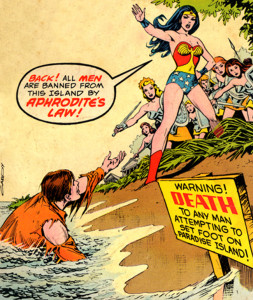
I am puzzled.
Recently I’ve received a couple books that are in a documentary format, primarily interviews, with a few faux news reports or audio diary transcripts. Specifically audio diaries. It’s weird. There’s something in the air.
Is this an attempt to ape a format from another medium? People talk about the growth of ‘cinematic’ writing (which is yet another meaningless phrase that only confuses people as they disagree on the definition, but WHATEVER) so is this just another layer of extrapolation after that? Trying to translate documentaries into novels?
Friends, we’ve already discovered that format for writing. It’s called non-fiction. There aren’t that many non-fiction books in this specific interview/transcript format for a reason.
This isn’t to say that trying new formats is terrible and no one should ever do it. But trying to imitate documentaries in book format this way feels a bit like using translation software to get text from English to Japanese to Spanish and seeing what you get. You can do it. But without some extra work, it’s not going to be any good to anyone.
Authors that are successful massage the format to make use of novelistic techniques — techniques that make books unique, make them different from movies. They still bring in techniques inspired by movies, but they don’t drop everything that’s powerful about the written word. And when they do bring in movie techniques, ones that rely heavily on visual or aural cues, they figure out a way to translate those cues.
Because here’s the problem: Interviews. Transcripts. With nothing else. No support.
You get two people talking in a white room, no sense of how these people look, act, or sound (unless there are clumsy comments made by either of the people). Interviews happen after action, so we as readers don’t even get to see what happens — we hear about it afterward! No one likes that! I don’t care about how a character feels about things exploding two days after the fact. I don’t care about two characters slowly falling for each other (maybe??? It’s hard to tell!) if they are never on the page together because of the interview format.
If an entire novel is done in dialogue/monologue like this, that author had better be a master stylist who can really nail down character voices. Losing the power of description and narration means dialogue has to carry that weight, and man. Not a lot of people can write dialogue that good.
No actor is going to come in and give the words life through body language, tone, a single minute gesture. That’s what the rest of the novel is there for. That’s why we don’t read movie scripts. We watch movies.
Wait, or is it an attempt to imitate the format of archive files? Like, transcripts from recordings surrounding an “incident”? Reaching for a sort of verisimilitude found in a bunch of musty manila folders in a locked file cabinet deep in the archives of the X-Files? Because, let me tell you, documents in a manila folder do not make engaging reading.
Anyway, hooray, I gave up on this particular book and my life is the better for it. If you have an example of this format done well, PLEASE SHARE and I’ll be your new best friend.
